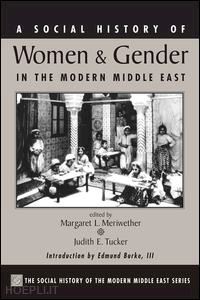
Authors: Fatma Müge Göçek & Shiva Balaghi
Employing a broad, interdisciplinary perspective on gender relations, « Reconstructing Gender in the Middle East » questions long-standing stereotypes about the traditional subordination of women in the region. With essays on gender construction in Iran, Turkey, Israel, Morocco, Egypt, Lebanon, and the Occupied Territories, this collection offers a wide-ranging exploration of tradition, identity, and power in different parts of the Middle East. Seeking to overcome monolithic Western notions of women’s life in « the traditional society, » the essays in Part I reexamine the assumption that such societies leave little room for female participation. Part II focuses on the reconstruction of identities by women in Iran, Turkey, Israel, and the Occupied Territories.The authors examine the complex variables that contribute to the development of identities – including gender, class, and ethnicity – in various Middle Eastern societies, questioning whether certain identities are more important to women than others. These essays also look at the issue of group identity formation versus the autonomy of the individual. Part III looks at the relationship between gender and power in everyday life in Lebanon, Israel, Egypt, and Morocco, showing how power relations are constantly contested and renegotiated among family members and members of a community, between nations and between men and women. With its collection of enlightened and diverse contemporary perspectives on women in the Middle East, « Reconstructing Gender in the Middle East » is an important work that will have significant impact on the way we look at gender in traditional societies.


